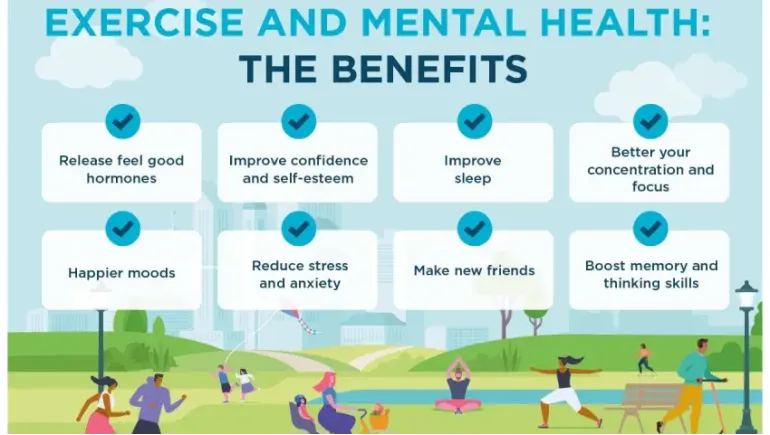
In recent years, the conversation around health and fitness has evolved significantly, transcending the traditional focus on physical strength and endurance. Today, the future of fitness emphasizes a holistic approach, recognizing that mental wellness is just as crucial as physical health. As we move through 2024, integrating mental wellness into fitness routines is becoming a key trend, shaping how we view exercise, motivation, and overall well-being.
Numerous studies have established a strong link between physical activity and mental health. Regular exercise releases endorphins, the body's natural mood lifters, which can help reduce feelings of anxiety and depression. Additionally, physical activity promotes better sleep and cognitive function, contributing to an improved mood and greater mental clarity.However, it's not just about hitting the gym or running a few miles; it's about understanding how different forms of exercise can impact mental health. Activities like yoga and mindfulness meditation have gained popularity, focusing on the mind-body connection. These practices promote relaxation and stress relief, allowing individuals to cultivate a positive mindset while enhancing their physical fitness.
One of the most impactful ways to integrate mental wellness into fitness is through mindfulness. Mindful movement encourages individuals to focus on their body's sensations, breath, and movements during exercise. This approach not only improves physical performance but also fosters a deeper connection to one’s mental state.
Mindfulness is the practice of gently focusing your awareness on the present moment over and over again. It often involves focusing on sensations to root yourself in your body in the here and now. It can be practiced during formal meditation or during everyday activities, like cooking, cleaning, or walking
Before beginning your workout, take a moment to focus on your breathing. Inhale deeply through your nose, filling your lungs, and exhale slowly through your mouth. This practice can help center your mind and prepare you for your workout.
As you exercise, pay attention to how your body feels. Notice the tension in your muscles, the rhythm of your breath, and any sensations that arise. This heightened awareness can enhance your workout experience and help prevent injuries.
During your workout, take time to observe your thoughts without judgment. Acknowledge any distractions or negative self-talk, and gently guide your focus back to the movement.
Fitness communities have always played a significant role in encouraging physical activity, but they are increasingly recognized for their impact on mental health. Engaging with like-minded individuals can provide support, motivation, and a sense of belonging, all of which are vital for mental wellness.
Increased Motivation: Surrounding yourself with others who share similar fitness goals can boost your motivation. Group workouts, classes, or online fitness challenges foster a sense of accountability and encouragement.
Regular interaction with others can combat feelings of loneliness and isolation, contributing positively to mental health. Social connections are crucial for emotional well-being and can provide a support system during challenging times.
Whether it’s celebrating milestones or navigating setbacks, sharing experiences within a community can enhance resilience and foster a positive mindset.
Incorporating mental wellness into your fitness routine also means recognizing the importance of rest and recovery. Many individuals fall into the trap of overtraining, believing that more exercise equates to better results. However, rest is essential for both physical and mental recovery.
Company recovery strategies are the strategies undertaken to preserve a company and prevent its shutdown. The key objective of company recovery strategies is to quickly identify and address the sources of its problems that may lead to its collapse
Plan regular rest days into your fitness routine to allow your body and mind to recover. Use this time to engage in light activities, such as walking or stretching, that promote relaxation without strain.
Practices such as yoga, meditation, or even simple breathing exercises can significantly reduce stress and promote mental clarity. These techniques can be integrated into your recovery days or included as part of your warm-up or cool-down routine.
Pay attention to your body’s signals. If you’re feeling fatigued or mentally drained, it’s okay to adjust your workout intensity or take an extra day off. Prioritizing self-care is essential for long-term success in your fitness journey.
As technology continues to evolve, innovative tools are emerging that can help integrate mental wellness into fitness routines. Fitness apps, online classes, and guided meditation programs offer accessible resources for individuals seeking to enhance their physical and mental health.
The future of fitness is set to be a fusion of technology, personalization, and connectivity. Emerging technologies like wearable devices, VR, AR, AI, gamification, and social integration are reshaping the fitness landscape and empowering individuals to take control of their health and well-being like never before
Applications like Headspace or Calm provide guided meditations and mindfulness exercises that can complement your fitness routine, helping to reduce stress and enhance focus.
Many fitness trackers now offer features that monitor stress levels and provide insights into your overall well-being. Utilizing these features can help you understand how your workouts impact your mental state.
Online platforms that offer live-streamed workouts can foster community and connection, allowing you to engage with others while focusing on both physical fitness and mental wellness.
The future of fitness is about embracing a holistic approach that integrates mental wellness with physical health. By practicing mindfulness, building supportive communities, prioritizing recovery, and leveraging technology, individuals can create a well-rounded fitness routine that nurtures both body and mind. As we navigate 2024 and beyond, let’s prioritize mental wellness as an integral part of our fitness journeys, recognizing that true health encompasses more than just physical performance. By doing so, we pave the way for a healthier, happier, and more balanced lifestyle.


-112x63.27.webp)




-132x74.57.webp)




Comments
There are no comments for this Article.